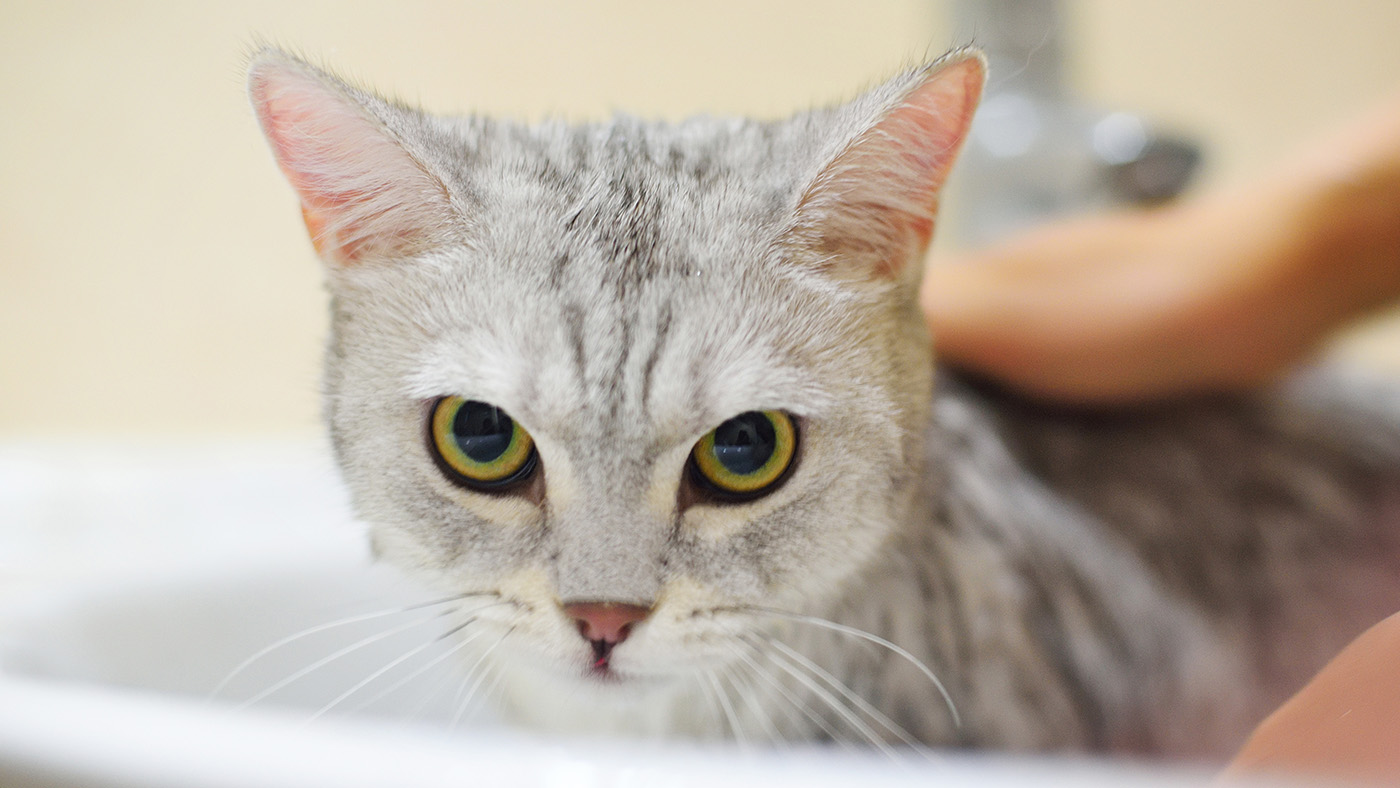Does your cat hate bath time? Vet reveals how to keep them clean without a full-body wash
Cats evolved to be water-averse, so try other ways of keeping them clean

Get the best advice, tips and top tech for your beloved Pets
You are now subscribed
Your newsletter sign-up was successful
Cats hate water, right? In popular culture, the life of a feline consists of eating fish, chasing mice, fighting with dogs, and running from the sight of water.
While some cats do love water, even going for a swim, there is some truth to the stereotype. If you’ve ever tried to give your kitty a wash and ended up covered in scratches despite promises of the best cat treats, you’ll be able to testify.
So, why do cats hate water, and what can we do to help keep them clean? Dr Aimee Warner, resident vet at Waggel, has all the information we need.
It’s partly due to the way cats evolved, as Dr Warner explains. “When we see a cat 'overreacting' to water, we're witnessing millions of years of evolution in action,” she explains. “Their ancestors survived by avoiding water, and that programming is so strong it overrides logic. Understanding this changes everything about how we approach feline hygiene."
Domestic cats are descended from the African wildcat, which tends to live in desert climates where there isn’t a lot of water. The reason cats are so adept at grooming themselves is so they don’t have to depend on water.
So, do cats need baths? Well, when cats get wet, their fur doesn’t provide as much insulation, and so can make them feel colder and more vulnerable. They can’t regulate temperature as well, and can’t move as quickly. They lose their natural scent markers, too. As Dr Warner adds, "It's not stubbornness. It's genuine distress. Their nervous system is telling them they're in danger."
So, here’s what she recommends instead of battling at bath time:
Get the best advice, tips and top tech for your beloved Pets
- Opt for daily brushing instead: If you spend five minutes a day on brushing, you’ll remove dirt and distribute natural oils more than less frequent baths. Make sure you choose the right brush for your feline, so use a slicker brush (like this one on Amazon) for long hair and a rubber brush (like this one) for short hair.
- Spot-clean: Use cat-friendly wipes and dry shampoos (like this one) to tackle specific areas, like dirty paws or faces. You can keep your cat clean without getting their entire body wet.
- Utilize positive reinforcement: If you take things slow and reward your cat, they’re more likely to grow to enjoy brushing. By building their trust over time, you’ll make things like nail trimming or checking their teeth easier, too.
- Keep water for emergencies only: Make sure you reserve bath time for emergencies. For example, if your cat gets into a dangerous substance, is very unwell, and a bath would help, or they’ve soiled themselves to the point where it could pose a health risk.
"Sometimes safety trumps comfort," Dr Warner says. "If your cat gets into something dangerous, quick action matters more than their preferences. But we can minimise the stress."
If you must bathe your cat, she recommends keeping the room warm, using shallow lukewarm water and a non-slip surface, putting on a calm voice, and wrapping them in a warm towel straight after.
"Save the water battles for true emergencies," Dr Warner summarizes. "Your cat will be healthier, happier, and your relationship will be stronger when you work with their instincts instead of against them."
Read next: How to give a cat a flea bath
Edited by Georgia Guerin.

Adam is a freelance journalist specialising in pets, music and culture, and mental health and wellbeing. He investigates and writes the large majority of news on PetsRadar, and collaborates with veterinary experts to produce informative pet care content.
Adam has a journalism degree from Southampton Solent University and a masters degree in Magazine Journalism from Cardiff University. He was previously senior editor at dog advice website DogTime.com, and has also written for The Independent, GoodToKnow and Healthline.
He owns two rescue cats, Bunny and Dougie, and has also previously had a rabbit, fish and Roborovski dwarf hamsters.
